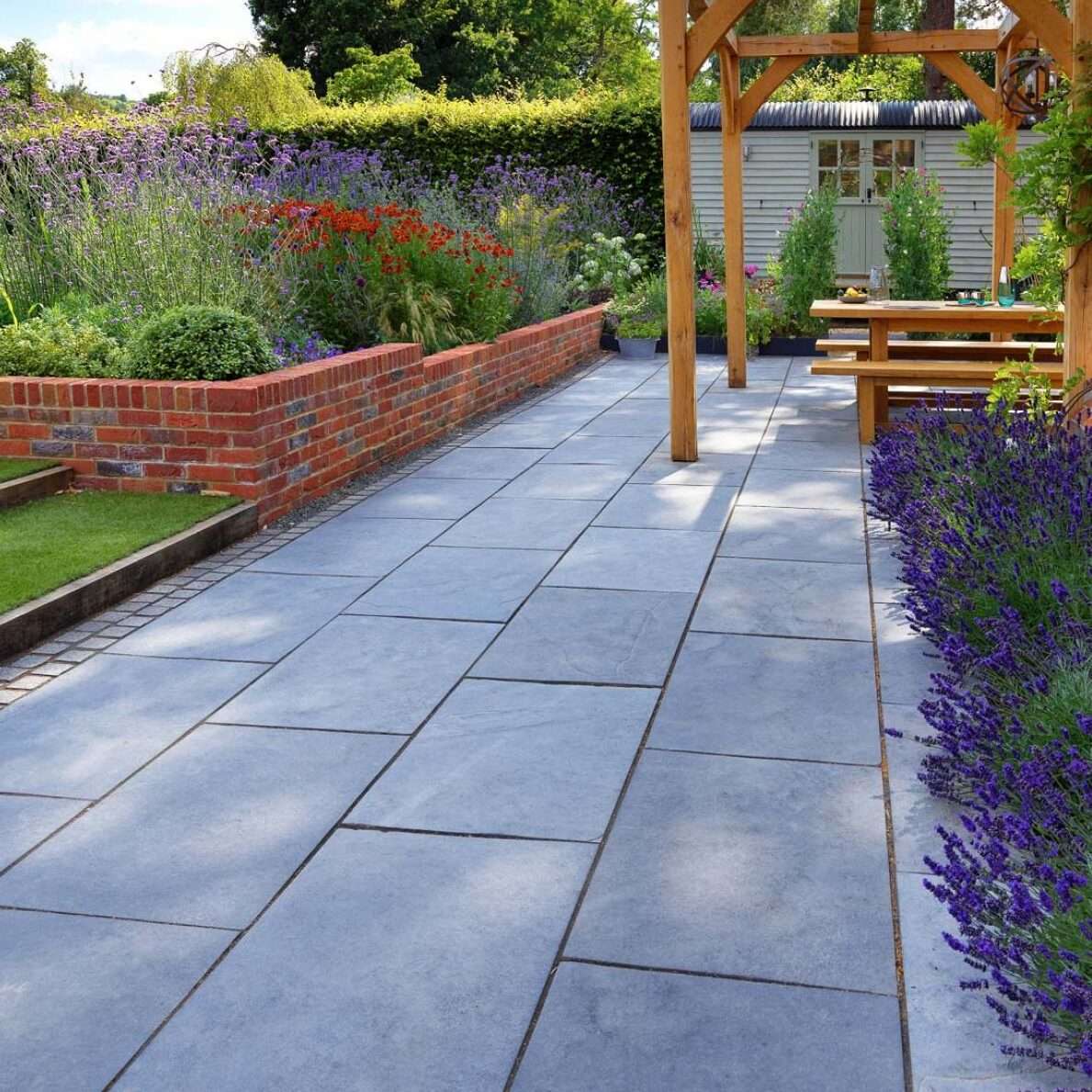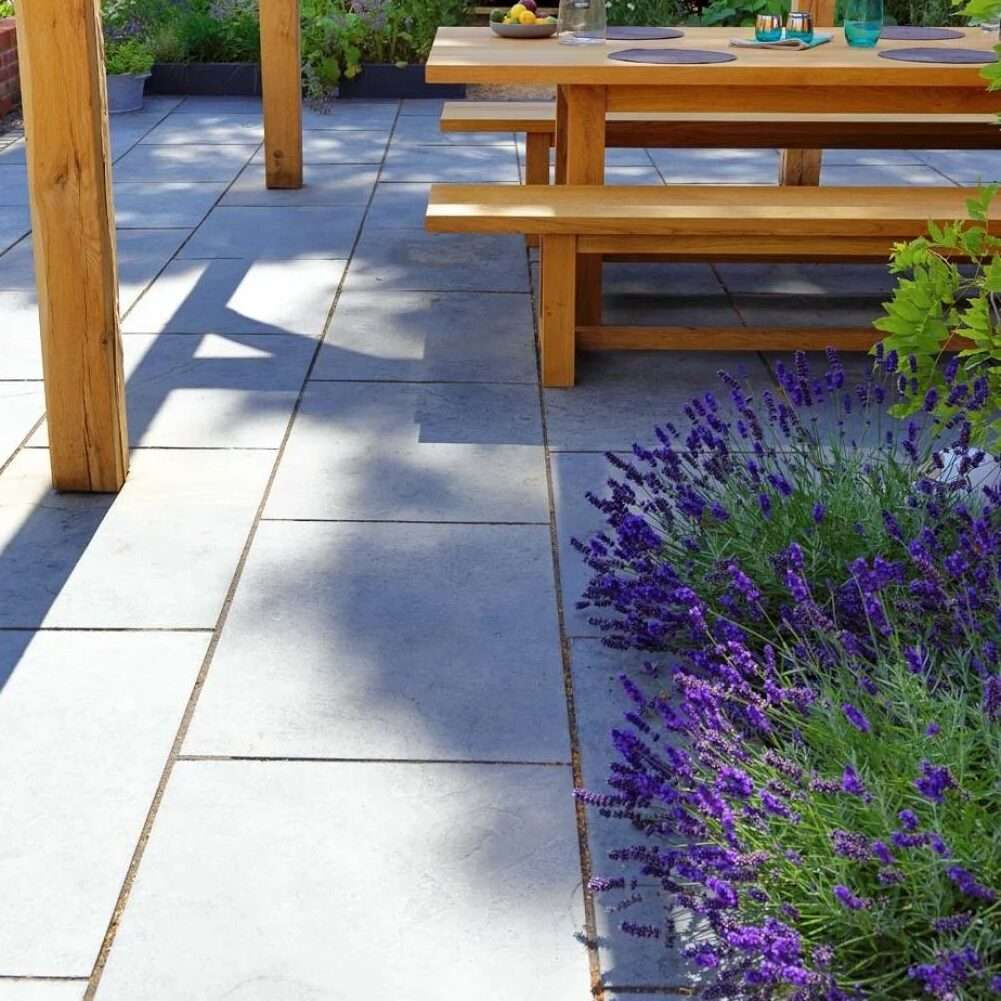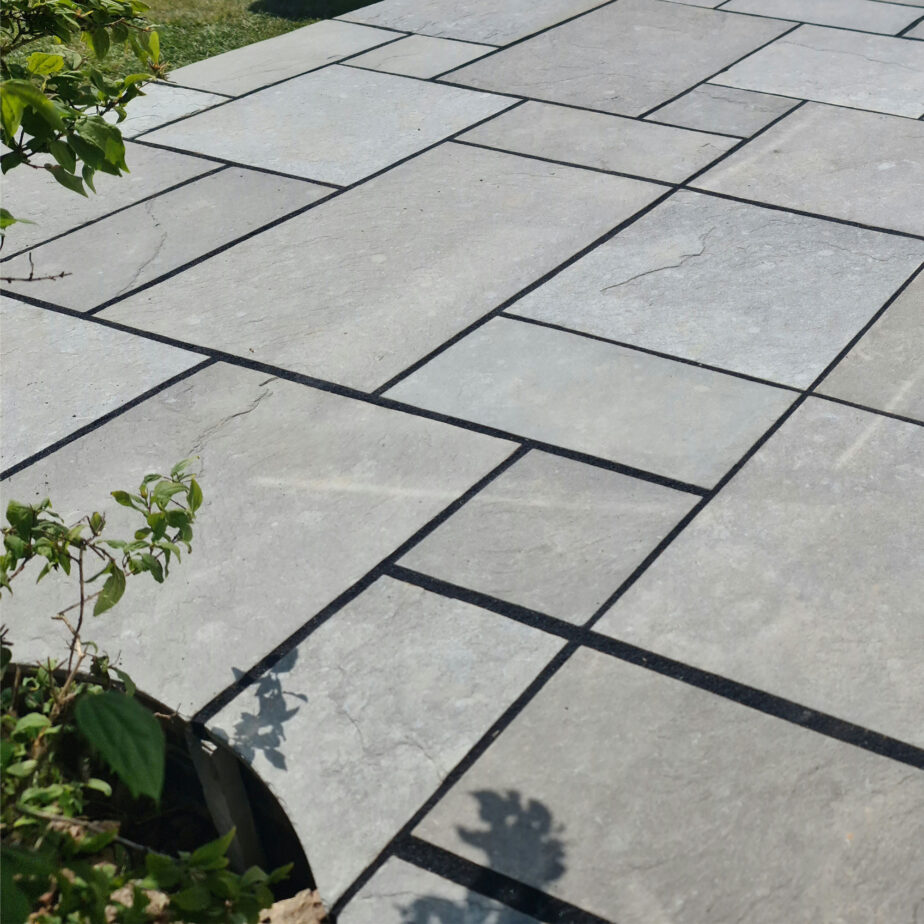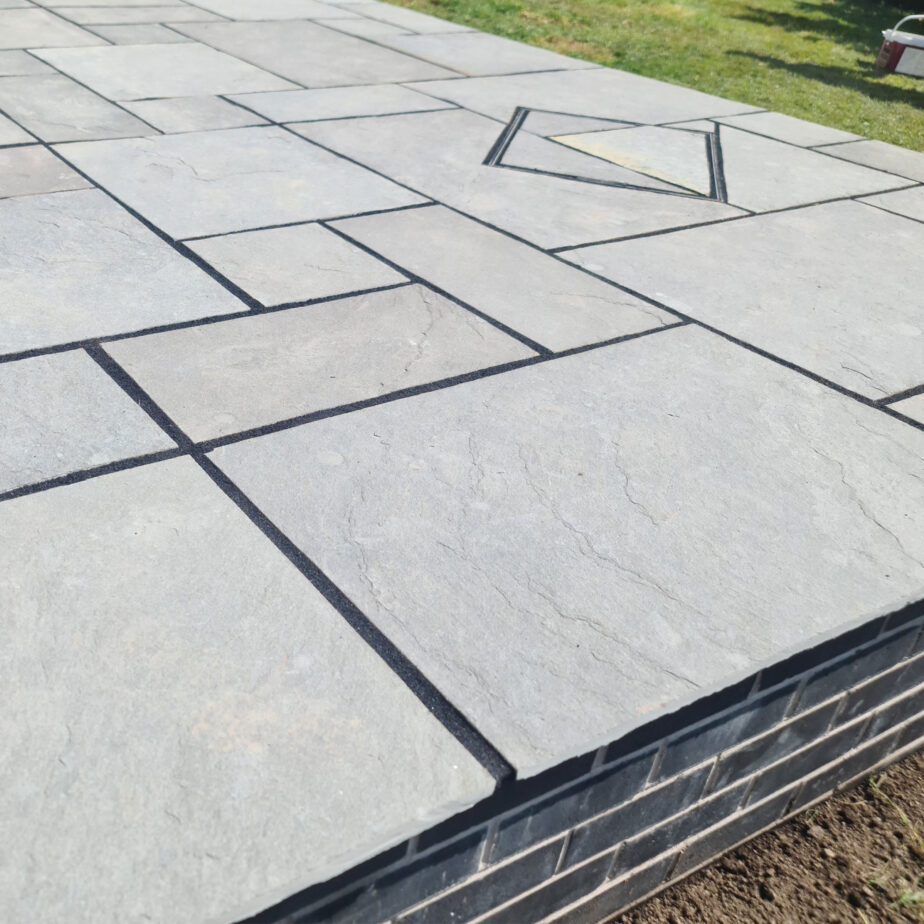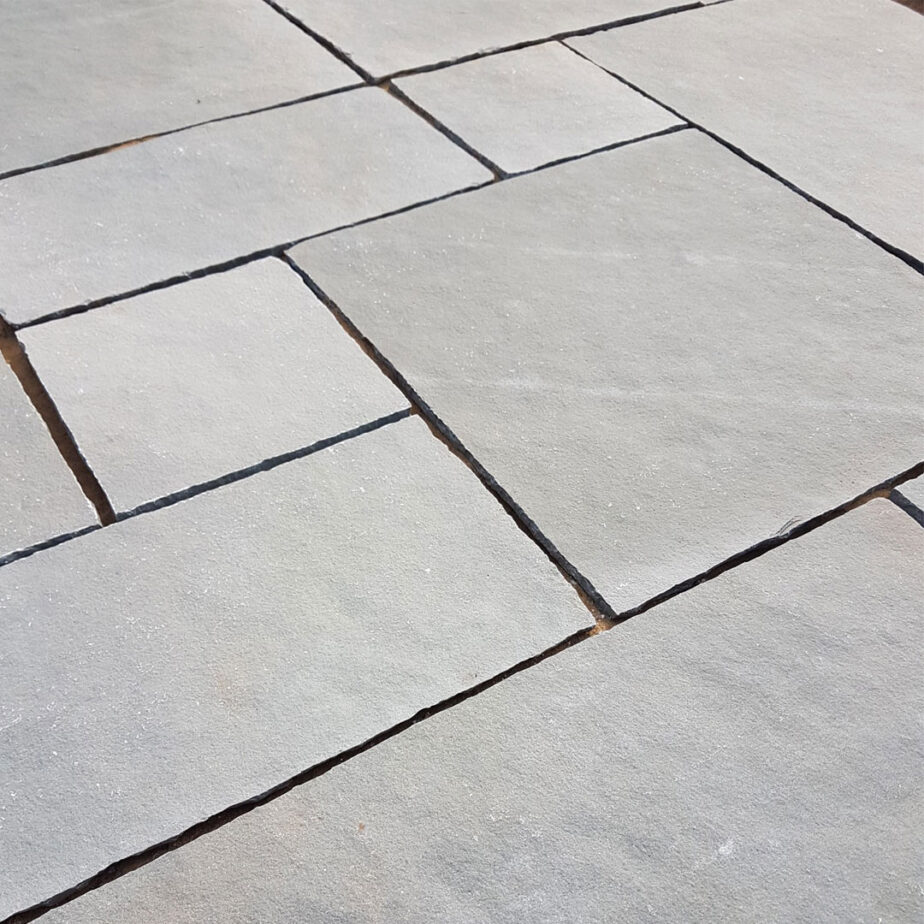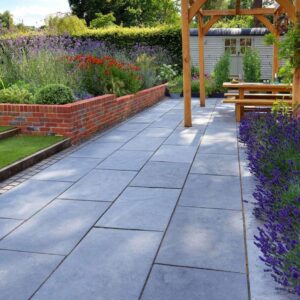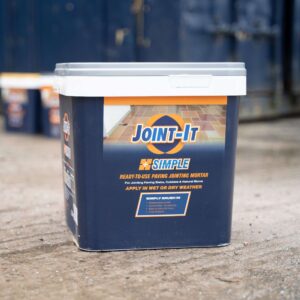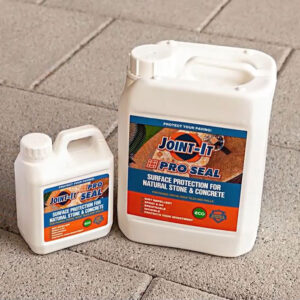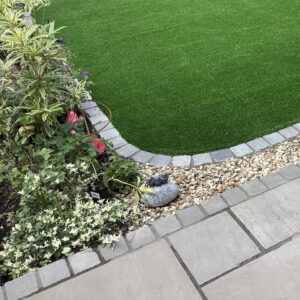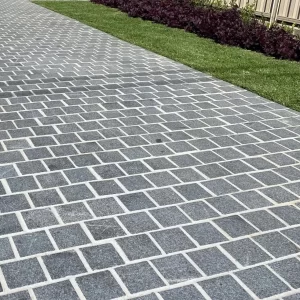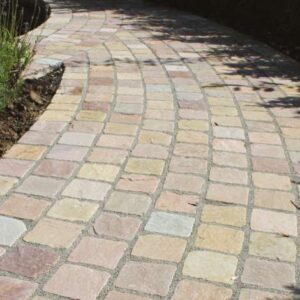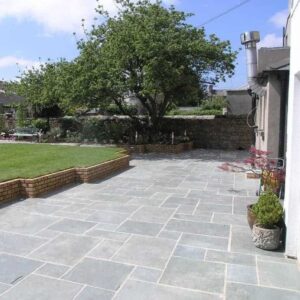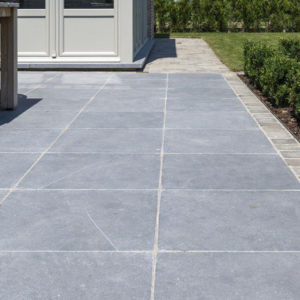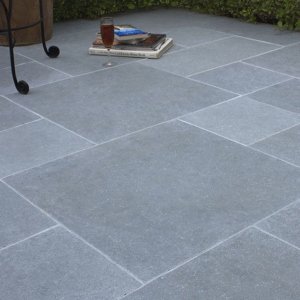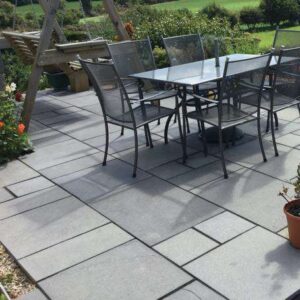Dove Grey Indian Limestone Paving Slabs – 900x600mm – 22mm Calibrated
£285.00 – £399.00 inc. VAT
- Durable & Hard-Wearing
- Lightly Riven Surface
- Sawn Cut Edges
- Looks Great Wet & Dry
- Low Maintenance
- Natural Slip Resistance
Pack Coverage:

FREE Delivery UK-wide*
Free shipping on all orders

Kerbside Pallet Delivery
Delivered via Palletways
Trade & Bulk Discounts
Up to £40 off per pack on all paving

Price Match Guarantee
We will not be beaten on price
Grey limestone paving is a beautiful natural stone that will bring warmth and light to your garden space, as well as creating a durable and hard wearing surface. Grey limestone paving lab has a blend of natural grey & white with a fine texture to give a natural look to your courtyards, pool areas and other walking areas. It offers a delightful rustic charm, and you can enjoy our dove grey limestone paving for years to come.
Product Info
| Brand | Ammaari Stones © |
| Product | Paving Slabs |
| Material | Limestone (Natural) |
| Thickness | 22mm Calibrated |
| Surface | Lightly Riven |
| Edges | Sawn |
| Colour | Dove Grey |
| Origin | India |
| Suitable For | Patios, Paths, Steps |
| Sealing | Recommended – Improves maintenance |
| Weathering | Colour will fade over time |
| Frost Resistance | Yes |
| Slip Resistance | Yes |
Pack Sizes
| Slab Size | 9m² | 18m² |
| 900x600mm | 16 slabs | 32 slabs |
Care Instructions
We recommend brushing away any debris from your paving slabs on a regular basis and washing the surface of the slabs when required. It is advised to seal limestone paving on a regular basis to help provide your paving slabs with additional protection against the British weather.
We advise you to use warm soapy water and a stiff brush to scrub the surface of the paving. Do not use any acidic or acidic-based products when cleaning your limestone paving slabs.
We're here to help
Frequently bought together...
Ratings & Reviews
Verified by REVIEWS.io ©
Product Information
Grey limestone paving is a beautiful natural stone that will bring warmth and light to your garden space, as well as creating a durable and hard wearing surface. Grey limestone paving lab has a blend of natural grey & white with a fine texture to give a natural look to your courtyards, pool areas and other walking areas. It offers a delightful rustic charm, and you can enjoy our dove grey limestone paving for years to come.
Product Info
| Brand | Ammaari Stones © |
| Product | Paving Slabs |
| Material | Limestone (Natural) |
| Thickness | 22mm Calibrated |
| Surface | Lightly Riven |
| Edges | Sawn |
| Colour | Dove Grey |
| Origin | India |
| Suitable For | Patios, Paths, Steps |
| Sealing | Recommended – Improves maintenance |
| Weathering | Colour will fade over time |
| Frost Resistance | Yes |
| Slip Resistance | Yes |
Pack Sizes
| Slab Size | 9m² | 18m² |
| 900x600mm | 16 slabs | 32 slabs |
Care Instructions
We recommend brushing away any debris from your paving slabs on a regular basis and washing the surface of the slabs when required. It is advised to seal limestone paving on a regular basis to help provide your paving slabs with additional protection against the British weather.
We advise you to use warm soapy water and a stiff brush to scrub the surface of the paving. Do not use any acidic or acidic-based products when cleaning your limestone paving slabs.
Grey Limestone Paving
Dove grey limestone paving has a slight yellow tint, mixed with the gorgeous grey colour to give an elegant and luxurious feel to your outdoor space. Grey limestone slabs 600 x 900 are popular in gardens across Britain thanks to their durability, resistance to the British weather and relative ease of maintenance. The textured surface of grey limestone slabs means that they offer brilliant underfoot resistance, so you can enjoy your light grey limestone patio paving in all weathers.
Grey limestone patio slabs are extremely dense, almost like marble, and they are well known for their hard wearing properties and are a great alternative for other garden slabs like granite and porcelain.
Grey limestone paving slabs will suit your garden no matter what look you are going for. Dark grey limestone slabs will add a modern and contemporary feel to your garden, whereas light grey limestone patio paving will create a warm and welcoming space for you to enjoy. The natural, tumbled effect will offer a rustic and antique edge no matter which option you choose, and you can find a wide range of grey limestone patio slabs to browse here at Ammaari Stones. We have everything from Kandla grey paving right through to distressed dove grey limestone slabs so you can create your perfect outdoor space.
Grey limestone paving cleaning
It is important to note that you should only use water or a PH neutral diluted detergent when cleaning your dove grey limestone paving slabs. Using an acid based cleaner on your natural grey limestone slabs will result in creating a chemical reaction that will permanently damage the surface and colour of your patio.
Why should you choose limestone paving slabs?
- Grey limestone slabs are an incredibly durable material, and natural stone will stand the test of time. Limestone was used in many museums, churches and houses before man-made tiles and slabs, showing just how hard wearing your new patio will be.
- Limestone is available in a wide range of colours. Instead of opting for dove grey limestone paving slabs, you have the options of yellow, blue, and black tinted slabs that are bright, bold and look amazing in every outdoor space.
- Limestone has a smooth and flat surface, making it the ideal choice for driveways, paths, and patios.
- Limestone has a low water absorption rate, meaning it can stand all types of British weather!
- Limestone is extremely strong and will easily cope with the weight of cars or heavy foot traffic without wearing away.
Natural Variation Information
As limestone is a natural stone, there will be slight colour variations between each paving slab. You may also find that there are brown markings on natural stone, which is caused by the oxidisation of any iron which may naturally occur in the stone. Don’t worry, this will blend in over time. No two grey limestone paving slabs will look the same and will add to the rustic, classic limestone paving look.
Installation and Aftercare
The installation of natural stone is equally as important as choosing the right product to ensure that your space looks amazing and will stand the test of time.
You will firstly need to mark out the area that you wish to pave and remember to add additional tiles for breakages and waste cut-offs. You will then need to prepare the ground and dig a base around 15-20mm deep. Your base should be even and solid and you may need an additional layer of sand or fine gravel to help the tiles bond more securely. Once the base is ready, you will need to add a layer of mortar onto the compressed soil or sand. The limestone slabs will need priming before you begin to lay, and once these have been primed with a priming slurry you are ready to lay your patio! Once all the tiles have been laid, you will need to use an exterior grout to ensure that your tiles are secure and safe.
Your limestone patio should be swept regularly and cleaned once or twice a year to keep it looking fantastic and to protect the surface of the stone. Be careful if you use a pressure washer, as this could affect the surface of the slabs. We recommend that you use warm soapy water (using a PH neutral detergent) and a soft bristled brush to clean your natural stone paving. Never use acid-based cleaning products as this can stain and affect the colour of your natural stone.
FAQs
Is limestone good for paving?
Limestone is a perfect option for outdoor paving as it is smooth and flat, providing the ideal coverage for large areas. It is also extremely hard wearing and durable, as well as only absorbing a minimal amount of water so you can use it anywhere – patios, pool areas, courtyards, and driveways.
How long will limestone paving last?
Once your limestone paving has been installed, you can expect it to last for decades with the proper maintenance and cleaning. Limestone is renowned for being hard wearing, durable and extremely strong with minimum water absorption so you don’t have to worry about moss and algae ruining your outdoor space.
Is limestone good for a driveway?
Limestone tends to be flat and smooth, with less ridges in its finish (it is well known for being a smooth natural stone.) This means that the even surface makes it the ideal choice for driveways, and it is extremely strong so will be able to bear the weight of cars and heavy footfall without cracking or crumbling.
Is limestone suitable for outdoors?
Limestone is the perfect natural stone choice if you are looking to brighten up your outdoors. It is brilliant at preserving itself against the elements, extremely strong so can withstand heavy traffic, it is hard wearing and durable and it has low water absorption so is anti-frost – perfect for the Great British weather!
Is it OK to power wash limestone?
Power washing is not recommended to clean limestone as it can blast away the surface of the stone and change the texture, if it is not done carefully. Instead, soft washing is recommended. Use warm soapy water (a PH neutral mild detergent) and a soft bristled brush to clean your limestone paving. Do not use acid-based cleaners as this will affect the colour and texture of your limestone.
Do limestone pavers stain?
Frequent cleaning should prevent your limestone paving from staining, but there will be instances where embedded debris can cause small stains. You can deal with these stains by cleaning your limestone paving with warm water and a PH neutral diluted detergent and a soft bristled brush. Do not use acid-based cleaners to clean your limestone as this will affect the colour and texture of the natural stone.
Can you seal limestone?
Sealing your limestone is essential to ensuring that your patio or driveway stays in its best condition. Outdoor limestone will require little maintenance if it has been properly sealed, and you will need a deep penetrating sealant to give the best possible protection. Simply brush a few layers of the sealant onto your limestone paving slabs before laying and allow the sealant to soak in and dry before you start.
Why is my limestone turning orange?
As limestone is a natural stone, it has been exposed to a range of elements over millions of years as it has been forming. The orange spots are known as rust spots and are caused when pieces of iron embedded in the stone begin to oxidise. This is a natural phenomenon and occurs when the natural mineral Content of the stone is exposed to different types of weathering.
Does bleach harm limestone?
Yes, bleach is too harsh for limestone and will harm your paving tiles. Bleach, or any cleaners containing acid should never be used on natural stone. It will eat through the sealant of the limestone and greatly affect the colour of your paving slabs, turning them a white colour and ruining the natural, rustic appearance.
How do you remove black stains from limestone?
If you do find that your limestone has stained, then stay away from the bleach or any harsh cleaning products. Instead, start by using a damp cloth or a soft bristles brush and warm water and see if the stain can be removed. If you find that this still isn’t working, you can try a specialist limestone stain removal cleaner.
How long does limestone sealer last?
If you choose a deep penetrating limestone sealant and wait for it to soak in and dry properly before installing, you can expect the sealant to last between 10-15 years with no other maintenance (depending on how many coats you use). If you want to keep on top of the maintenance properly and reduce the risk of stains and weathering, it is recommended to reapply the sealant every 5 years.
Can you power wash limestone tiles?
The best way to wash your limestone tiles is to use a PH neutral detergent mixed with soapy water using a soft bristled brush to get rid of any stubborn debris or stains. Power washing is not recommended to use when cleaning limestone tiles as you can very easily apply too much pressure and blast away the surface of your natural stone, leaving it open to erosion.
How much does limestone paving cost?
If you are looking to lay new paving or build a new patio, then limestone pavers are both affordable and durable in the long run. Don’t forget that you will need to also think about the cost of the installation and the after care of natural stone, but limestone is a low maintenance option that looks brilliant in every garden.
What’s special about these limestone slabs?
Not only is limestone extremely strong, durable, and hard wearing with low water absorption rates, but it also looks stunning in every finish. The tumbled texture of limestone paving slabs and the natural colour variations offers a charming and rustic feel that will create a welcoming and warm outdoor space that you will be able to enjoy for years to come.
Should I select a smooth or textured surface?
Limestone is renowned for being a natural smooth stone, but there are different textures that you can choose. Tumbled limestone offers an aged, slightly worn look with rounded edges, while polished limestone has a shiny, reflective surface with sharp edges. If you are looking to lay an outdoor area using limestone, the tumbled texture is the best for anti-slip properties and will withstand heavy foot traffic.
What laying pattern should I choose?
There are 4 main laying patterns that you can choose from when laying your outside tiles. A random laying pattern will give a more rustic feel, a stack bond paving laying pattern is very uniform and looks like a chessboard, a stretcher bond laying pattern is one of the more simpler laying patterns and is also known and the running bond, and finally the herringbone laying pattern is the traditional laying pattern for single, rectangular tiles.
Is it safe to clean my limestone tiles with household bleach?
It is not recommended to clean limestone paving using bleach, as the strong chemicals will affect the colour of the natural stone. Instead, you should simply use warm water with a PH neutral detergent and a soft bristled brush. It is recommended that you regularly clean your limestone tiles to ensure they last you for years to come.
How thick are limestone paving slabs?
Outdoor limestone paving slabs are much thicker than domestic slabs, with high-grade limestone slabs ranging between 50 – 70mm thick (domestic slabs are usually 40mm thick.) You will need your limestone paving to be thicker as it will need to withstand the British weather conditions and heavy footfall while you are enjoying your garden.
Does limestone paving fade?
As limestone is a natural stone, it will be prone to the same weathering and wear. Limestone can face when exposed to the sun for too long, so if you choose a dark colour limestone you should expect to have a lighter patio in the years to come. To prevent this fading, you can use a fading sealant before you lay your patio, and remember to keep it topped up.


